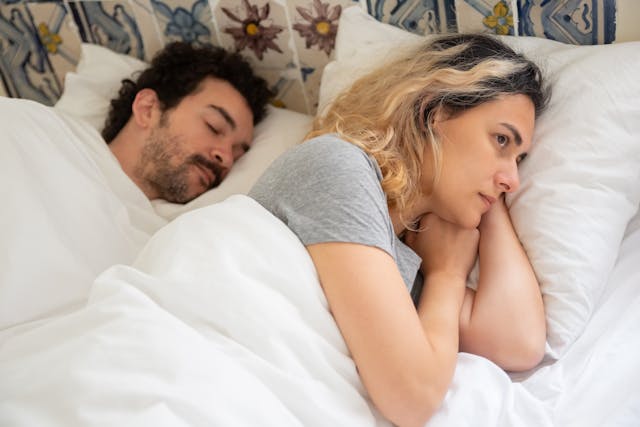Photo by Kampus Production from Pexels
There are many ways individuals are sensitive to their environments, which can impact and disrupt sleep. That includes sensitive skin, allergies, and a low tolerance for noise. So, how can you get more Zs? Let’s talk about solutions so you can get the rest needed to feel at your best when waking up in the morning.
Hypoallergenic Bedding
Sheets touch your skin throughout the night, potentially aggravating those with sensitive skin, eczema, or common allergies. Ideally, bedding should be breathable, gentle, and not contain potentially toxic chemicals. Hypoallergenic bedding can reduce the chances of sleep discomfort. For sensitive sleepers, bamboo charcoal bedding is worth considering for its silky-soft feel, natural absorption of odors, and antimicrobial and antifungal properties. Feeling more comfortable at night may help the body relax for better sleep.
Air Purifier
Dust mites and pet dander are among the most common irritants in the air at home, including in the bedroom. These airborne allergens can make breathing difficult for some people, such as those with asthma. Adding an air purifier to the household can be a way to clean indoor air to make nighttime (and any other time of day) more comfortable. For instance, a HEPA air purifier in the bedroom may reduce nasal congestion. The device may help those with a dust mite allergy, for example, get more sleep rather than waking up with a runny nose, watery eyes, or sneezing.
White Noise Machine
Being sensitive to noise is difficult, especially when you are around those who do not understand the headaches it gives you. Encourage those in your household to be quiet at night to help you get better rest as a light sleeper, helping prevent you from waking up to noises made by those you live with. A white noise machine can be a great addition to the bedside table, helping you get deeper sleep rather than waking up in the middle of a sleep cycle (which leaves you tired the next day). If you don’t want a dedicated machine, consider using a fan for white noise instead; the steady noise can mask unpredictable sounds that would otherwise interrupt sleep.
Loose-Fitting Clothes
What you wear to bed can make a difference, too. Tight-fitting sleepwear can make you uncomfortable and bunch up, leading you to wake up to adjust the clothing. Some pajamas are made of breathable fabrics to help prevent overheating at night, which could leave you sweaty and keep you from getting good rest. Loose-fitting pajamas made of cooler fabrics, such as cotton, are conducive to better sleep for many people who have sensitive skin. Feeling itchy from the fabric is anything but fun, so avoid harsh materials that easily scratch against the skin. In the morning, change into something else you enjoy wearing around the home.
Conclusion: Making Changes for Greater Comfort
By improving the bedroom environment, you are more likely to get a peaceful sleep. Your choices can add up to more Zs as a sensitive person, depending on your needs and preferences. From hypoallergenic bedding to an air purifier and comfortable clothing, there are several things you can do to encourage better sleep.










